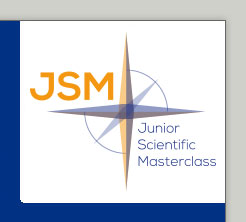Onderzoeksproject aanpassen
Projecten zijn uitsluitend aan te passen door bij het project behorende onderzoekers.
Geef via het uitrolmenu aan welke onderzoeker u bent. Nadat op u de button 'Edit project' heeft geklikt, wordt automatisch een e-mail verstuurd naar het e-mailadres van de onderzoeker die u heeft gespecificeerd.
In deze e-mail staat een link waarmee u het project kunt wijzigen.
Project properties
| Title | Shared decision making with patients who may not decide wisely |
|---|---|
| Keywords | shared decision making |
| Researchers |
Dr. B.C. van Munster mw E. Helmich |
| Nature of the research | Qualitative research, using Rich Pictures and interviews |
| Fields of study | GP medicine psychiatry geriatrics |
| Background / introduction |
|---|
|
The growing demographic of elderly patients (more older people with more chronic diseases and impairments) complicates patient management and decision making. This patient population often deals with complex and chronic healthcare problems. Many frail older people, however, whether or not living in nursing homes, may have decision making disabilities, which leads to a pressing need to develop new approaches to shared decision making (SDM). Although SDM with older patients might already be challenging, SDM will become even more complex when patients indeed have decision making disability, i.e. are not fully capable to make their own decisions, or may tend to decide not wisely, for instance in cases of psychiatric (co)morbidity, alcohol or drug abuse, early stage dementia or other cognitive impairment. In order to engage properly in SDM with patients with limited decision making capacity and with patients who may not decide wisely, at least from a medical perspective, doctors should be able to deal with different perceptions, understandings or interpretations of the same situation, and to navigate different norms and values, and conflicting interests. This was previously described as being quite challenging in the context of end-of-life care, but also translates to decisions such as whether or not the patient can still live independently or needs to be admitted to a nursing home, whether or not patients should take medications for somatic or psychiatric problems or both, whether or not patients should allow others to support them in activities of daily living, and sometimes whether or not patients should be ‘protected’ against themselves. These questions pertain to sometimes conflicting ethical principles such as autonomy, integrity, beneficence or non-maleficence. SDM with patients who may not decide wisely thus calls for new approaches to communications skills training in postgraduate training programmes for psychiatrists, general practitioners, and elderly care physicians, as it implies that trainees do not only need to develop their generic communication and specific SDM skills, but also need to learn how to deal with multiple perspectives in complex situations. |
| Research question / problem definition |
|---|
|
In this project, we aim at exploring shared decision making with people who may not decide wisely by medical trainees in psychiatry (PSY), geriatrics (GER), general practice (GP) and elderly care medicine (ECM), in order to develop a new (shared) training module for the different postgraduate training programs. The main research questions are: 1. How do physicians engage patients, informal caregivers or surrogate decision makers in collaborative/supported decision making? 2. What do physicians need to develop competence in this domain? |
| Workplan |
|---|
|
To study the process of collaborative or supported decision making we will make use of a specific tool to explore complex situations, which is Rich Pictures. A rich picture is a pictorial representation of a particular situation including what happened, who was involved, how people felt, how people acted, how people behaved, and what external pressures they acted upon. The aim of the study is to gain a better understanding of the factors, e.g. emotions, perspectives, interpretations, norms and values, that influence the decision-making process. We will purposefully sample medical trainees from the three postgraduate training programs (PSY, GP, ECM) for participation in an one-hour rich picture (30 min) and interview (30 min) meeting. First, the trainee will be asked to create a rich picture of a complex situation where the medical trainee had to make a decision in collaboration with a patient who did not decide wisely. This will be followed by a semi-structured interview, in which the researcher will basically ask to explore the rich picture in as much detail as possible. Additional questions may include why the trainee chose this specific situation, and if and how this patient is representative of the trainee’s experience with decision-making with patients who may not decide wisely. Finally, we will ask the trainee to reflect on what made this situation particularly complex, and what might help to better address this type of situations in the future. Rich Pictures and interviews will be analyzed following a previously developed method, in collaboration with Dr. Sayra Cristancho, a Rich Picture expert from Canada. |
| References |
|---|
|
Helmich E, Diachun L, Joseph R, LaDonna K, Noeverman-Poel N, Lingard L, Cristancho S. ‘Oh my God, I can’t handle this!’: trainees’ emotional responses to complex situations. Medical Education 2018;52(2):206-215 Peisah C, Sorinmade OA, Mitchell L, Hertogh CMPM. Decisional capacity: toward an inclusionary approach. Int Psychogeriatr 2013;25:1571–79. |


